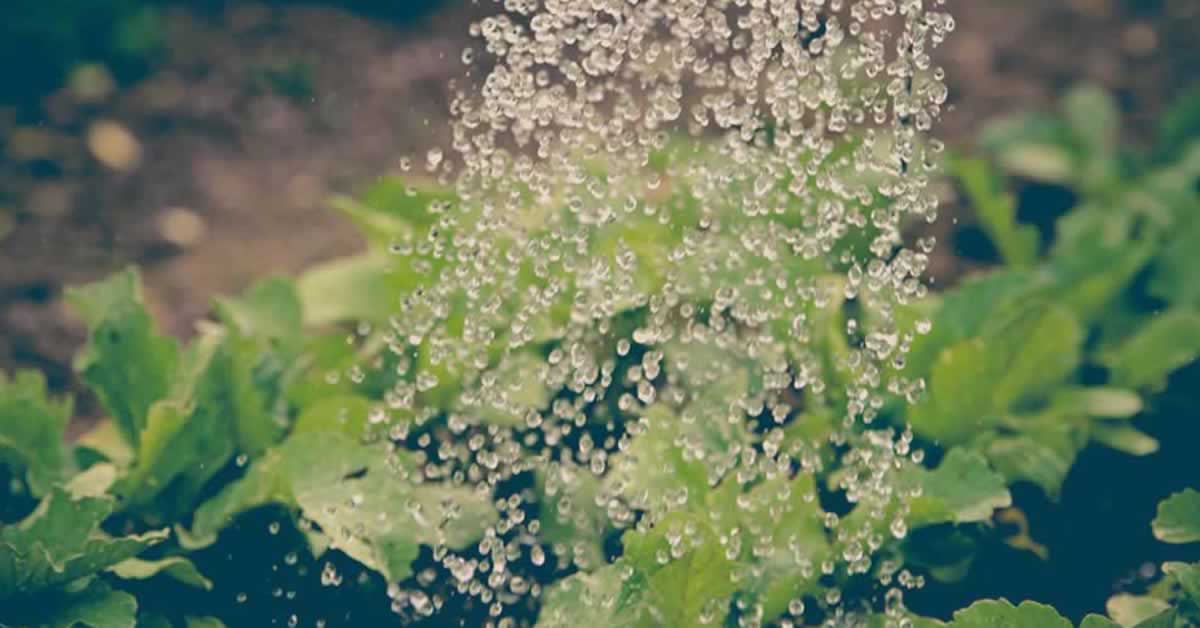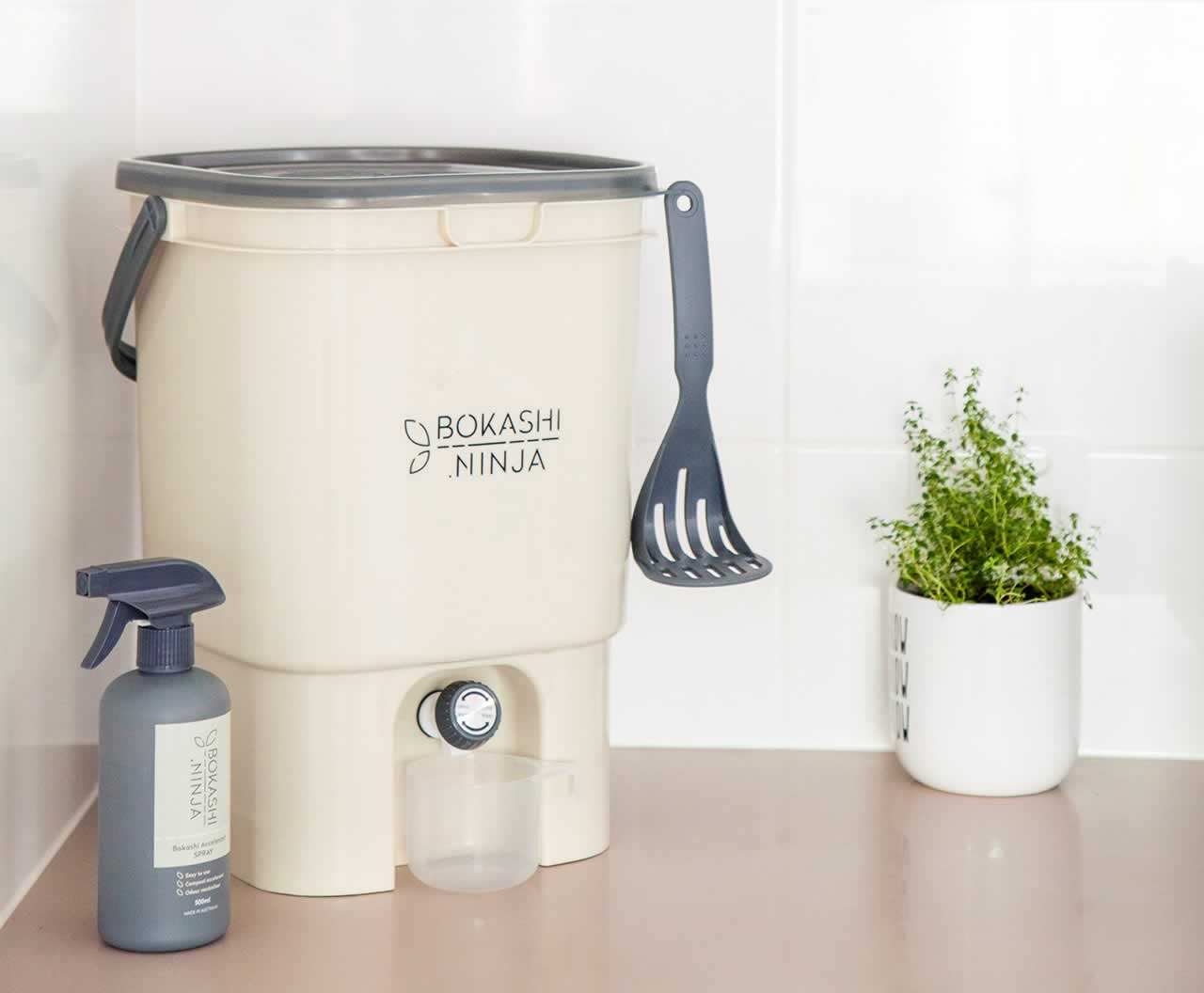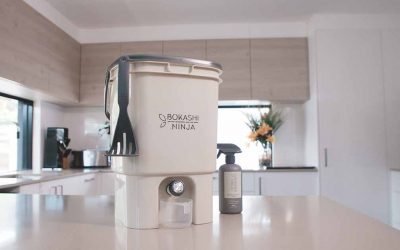10 insider tips on using the natural by-products of bokashi composting for your plants and garden that will make your friends, family, and your neighbours green with envy!
Discover how bokashi can be amazing for your garden, whilst benefitting your hip pocket and the planet at the same time.
Tip #1 – Turning your household food waste into free natural fertiliser
How does bokashi work?
Food waste is layered with Bokashi Ninja® Accelerator Spray in a Bokashi Ninja® bucket. Due to the air-tight bucket and the micro-organisms present in the Bokashi Ninja® spray, the waste ferments, creating a safe soil builder and nutrient-rich fertiliser for your plants.
Tip #2 – The two nutrient-rich by-products of bokashi composting
The first by-product of the bokashi in-kitchen composting system is the bokashi juice, otherwise known as bokashi tea. The concentrated liquid fertiliser is created when food waste ferments. The second by-product is the end product of the bokashi process, the soil enriching fermented matter.
Tip #3 – The secret ingredients that make bokashi composting so good for your plants?
The secret is in the combination of the nutrients from fermenting household food scraps (including fruit, veggie scraps, meats, egg shells, tea leaves, coffee grounds, citrus, leftovers, rice, bread etc), and the naturally occurring micro-organisms in the Bokashi Ninja® Accelerant Spray.
Normally food scraps go into a single use plastic bin bag and out to landfill to rot. This leaches toxic methane gas into our atmosphere, massively attributing to our climate crisis. Instead, by returning food waste to our earth, we are supercharging our soil and gardens, and helping our planet.
Tip #4 – How much fertilser does a bokashi make
Within 7-10 days of commencing the bokashi process the juice will start pooling in the base of the bucket. Give the bucket a gentle shake, you can hear the juice inside. It will continue to make juice during the entire 6-8 week process, even if/when you leave the bucket to sit for 2 weeks to finish fermenting. Bokashi can make anything from 1 cup to 1 litre of fertiliser a week, depending on environment, temperature and the type of food scraps in the bucket.
Tips #5 – How often is the juice to be extracted
It is recommended that you extract the bokashi juice every 3 to 5 days so the juice doesn’t get too potent. If you leave the juice in the bucket longer than a week it can get quite strong in odour.
Tip #6 – Diluting the bokashi juice before watering plants
As bokashi juice is concentrated, it is extremely important to dilute the liquid extract 1:100 before watering your plants and garden – that equates to 2 teaspoons to 1 litre of water.
Tip #7 – Weekly nutrient dose! – What plants can I fertilise and how often
You can fertilise your plants weekly with diluted bokashi juice, just as you would normally water your plants weekly. Citrus plants, fruit trees, indoor plants, outdoor plants, orchids, vegetables, herbs. It’s endless. As bokashi fertiliser is a natural fertiliser it can go on virtually any plants all year round. If you have any sensitive plants, try a small amount first.
Plants struggling for nutrients? You’ll be blown away by the new vibrant growth you’ll see using bokashi fertiliser.
HINT: be careful with delicate plants such as ferns.
Tips #8 – Leftover juice. Another hidden benefit!
Use undiluted bokashi juice as an antibacterial to pour down and clean drains, toilets or septic systems. If you have any leftover each week, it’s safe to pour down the sink.
Tips #9 – Bokashi fertiliser shelf life
Bokashi fertiliser does not have a long shelf life, it is recommended that you use it up straight away, or pour any excess down the drain.
Tips #10 – The incredible soil-enriching fermented matter?
Once the bokashi process is complete, the food waste has been altered and preserved, similarly to fermented foods. This fermented matter can then be buried into the soil and consumed by soil life, disappearing within a few weeks.
Worms can be prominent in this environment due to its vermicompost decomposition. All in all, the process adds nutrients and improves soil texture.
Emptying bokashi matter into an outdoor compost bin can also speed up the outdoor compost process, just balance it up with lots of dry matter.






